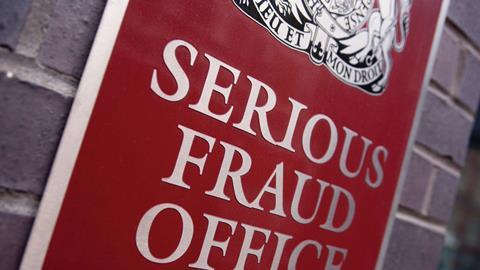New guidance on the presence of lawyers at section 2 interviews is confrontational and likely to be counterproductive.
The Serious Fraud Office (SFO) has published new operational guidance on the presence of lawyers at section 2 interviews.
Its content and tone betray a deep mistrust of defence lawyers, going significantly beyond any sensible restrictions on the conduct of lawyers in interviews. The capacity for witnesses to be meaningfully represented during SFO interviews is likely to be seriously hampered.
Section 2 interviews are those conducted under section 2 of the Criminal Justice Act 1987 in criminal investigations, typically with potential witnesses. Unlike suspects, section 2 interviewees do not enjoy a right to silence. It is a criminal offence to fail to answer questions without a reasonable excuse, or to provide false or misleading information even recklessly. Given the potential risks, it is hardly surprising that the presence of lawyers at such interviews has long been standard practice.
The guidance follows a ruling last year in R (Lord and Others) v SFO, in which the High Court held that the SFO had been entitled to exclude lawyers from interviews where those lawyers also represented the interviewees’ corporate employer. Despite its origins, however, the guidance is of far wider application.
From now on, lawyers will only be permitted to attend section 2 interviews if the SFO case controller believes that they will assist the purpose of the interview and/or investigation, or provide essential assistance to the interviewee by way of legal advice or pastoral support. Exceptionally, subject to the discretion of the case controller, a single extra person may be admitted solely for the purpose of taking a note. It is difficult to see what possible prejudice to the investigation could arise from the taking of a note, and therefore why such requests will only be granted ‘exceptionally’. There is also no indication of the criteria to be applied.
The lawyer must serve on the SFO, in advance of the interview: their name and the reasons why their presence in the interview will fulfil one of the purposes listed; written acknowledgement of the parameters of the role of the lawyer in the interview (referred to elsewhere in the guidance as ‘ground rules’), and that any breach of the parameters is likely to lead to exclusion without notice; and a series of written undertakings by the lawyer’s firm.
As to the grounds for exclusion, the guidance states that the lawyer may provide legal advice or essential assistance and must not otherwise do anything to undermine the free flow of information. Neither ‘legal advice’ nor ‘essential assistance’ is defined, although the statement elsewhere in the guidance that the lawyer ‘may… advise the interviewee on a matter of LPP [legal professional privilege]’ suggests that they will be interpreted restrictively.
There are of course many reasons why a lawyer may need to interject in a section 2 interview. On a basic level, the purpose of a section 2 interview is surely for the witness to provide – and for the SFO to obtain – reliable, coherent information that will assist the investigation.
The witness’s lawyer is there, in part, to assist in that process. Where the relevance of certain questions to the investigation is unclear, for instance, or it is obvious that the interviewer and witness are at cross purposes, the lawyer can have an important role to play in ensuring clarity and focus. There may also be a need to intervene, and possibly to suspend the interview, where a witness becomes exposed to criminal risk.
Whereas any decision to prevent the attendance of a lawyer in advance must be taken by the head of division at the SFO, the decision to exclude without notice can be taken by the case officer and there appears to be no process for appealing that decision. Witnesses will effectively be forced to choose between being properly represented at interview – but run the risk of their lawyer being excluded – or accepting that their lawyer will have an almost entirely passive role in exchange for the privilege of attending.
Among the undertakings to be provided by the lawyer’s firm is that it does not represent a suspect in the investigation. The implication that firms cannot be trusted to manage their potential conflicts is unjustified. In rare cases where a firm acts for a suspect and a witness in the same investigation, it is fair to assume that careful thought has been given to that and a determination made that there is no potential conflict of interests.
If the SFO did have concerns about potential prejudice to the investigation in a specific case, surely these could be dealt with through dialogue and, if appropriate, the use of an information barrier. The firm must also undertake that it will not, without the written authority of the SFO, disclose the content of the interview to, or discuss it with, anyone other than their client. Again, this implies that the ethical duties on lawyers, not to mention the criminal law, are insufficient to prevent us from handling information improperly.
The new and confrontational approach adopted in the guidance is disappointing and, moreover, it may turn out to be counterproductive for the SFO. Compelled witnesses are required by law to answer questions, but not to sign any witness statement or – in the absence of a court summons – to give evidence at trial.
It is not unreasonable to assume that potential witnesses will be less inclined to cooperate where they feel they have been disadvantaged by a lack of meaningful legal representation at interview. It remains to be seen how the guidance will be applied in practice. On the face of it, however, it would appear that the benefits of a broadly cooperative process have been overlooked.
Elly Proudlock is counsel in WilmerHale’s London investigations and criminal litigation team
































No comments yet